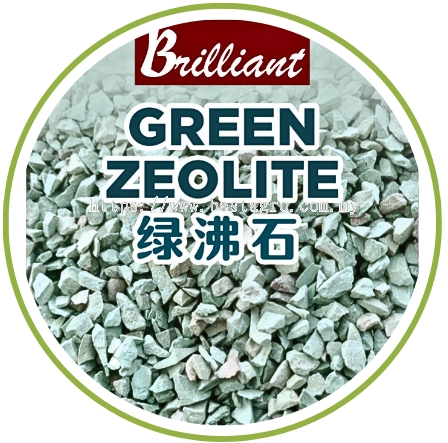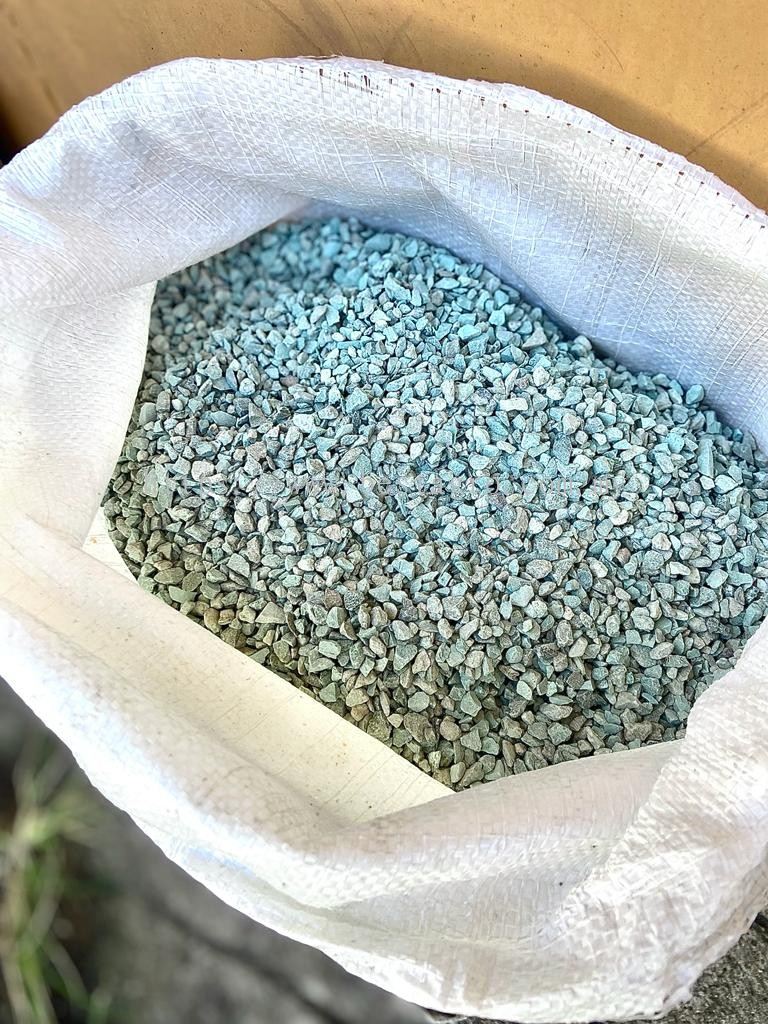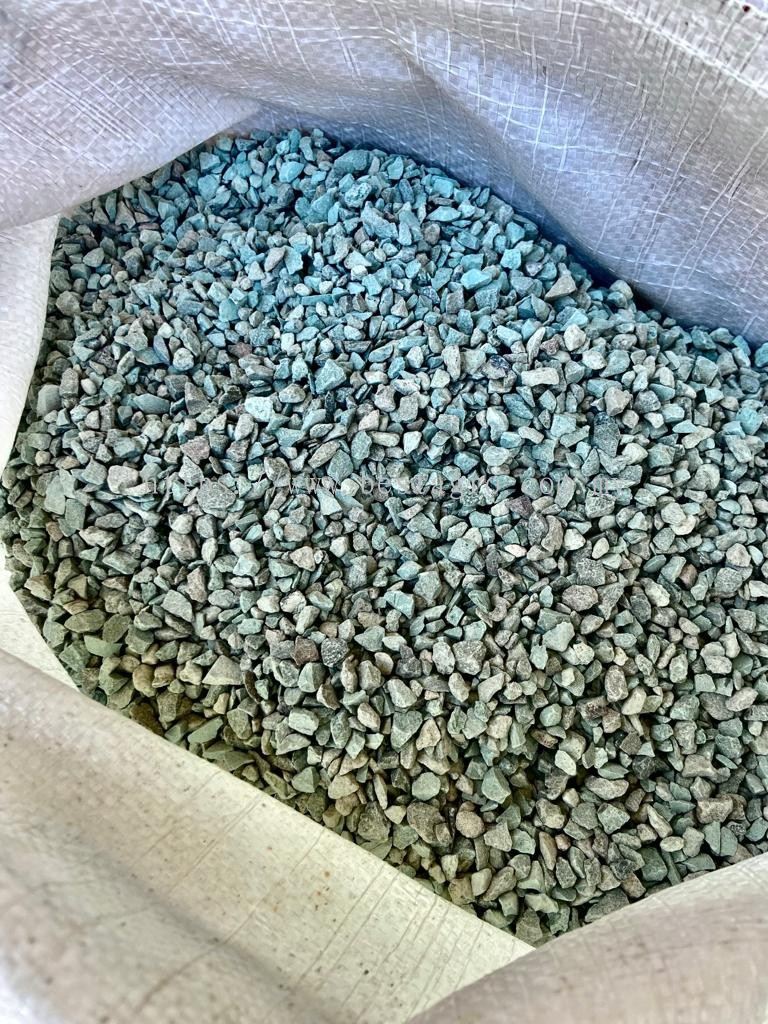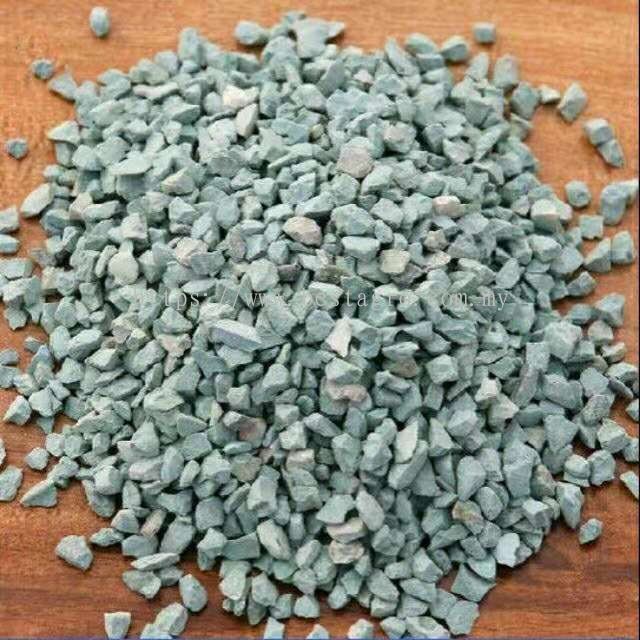1. What is Green Zeolite?
Green zeolite is a naturally occurring mineral known for its unique properties that make it an excellent growing medium for various plants. It is highly porous and has exceptional ion-exchange capacities, making it ideal for enhancing soil structure, improving nutrient retention, and promoting healthy plant growth.
2. Benefits of Using Green Zeolite as a Growing Medium
Superior Nutrient Retention: Green zeolite's ion-exchange properties allow it to retain essential nutrients such as potassium, calcium, and magnesium. These nutrients are gradually released to the plants, ensuring a steady supply of essential minerals.
Enhanced Soil Aeration: The porous nature of green zeolite improves soil aeration, allowing oxygen to reach plant roots more effectively. This supports healthy root development and overall plant vitality.
Improved Water Retention: Green zeolite can retain water while still providing excellent drainage. This balance ensures that plants have access to moisture without the risk of waterlogging, promoting consistent growth.
pH Regulation: Green zeolite helps to stabilize soil pH levels, making it suitable for a wide range of plants. By maintaining a balanced pH, it ensures optimal nutrient availability and uptake by the plants.
Toxin Removal: Green zeolite has the ability to absorb and neutralize toxins and heavy metals from the soil, creating a healthier environment for plant growth. This is particularly beneficial in areas with contaminated soils.
3. How to Use Green Zeolite in Gardening
Soil Amendment: Incorporate green zeolite into garden soil to improve its structure, nutrient retention, and aeration. Add about 10-20% green zeolite to the soil to enhance its properties and create a more supportive environment for plant roots.
Potting Mix: Create a balanced potting mix by combining green zeolite with other components such as peat moss, perlite, and compost. A typical mix might include 20-30% green zeolite to ensure adequate nutrient and water retention.
Top Dressing: Use green zeolite as a top dressing for potted plants and garden beds. It helps retain moisture, provides a slow release of nutrients, and enhances the soil's overall health.
Hydroponics: Green zeolite can be used in hydroponic systems to provide a stable and nutrient-rich growing medium. Its high cation exchange capacity ensures that plants receive a continuous supply of essential nutrients.
Lawn Care: Incorporate green zeolite into lawn care routines to improve soil structure and nutrient availability. Spread a thin layer over the lawn and water it in to promote healthier, more robust grass growth.
4. Best Plants for Green Zeolite
Vegetables: Green zeolite is particularly beneficial for vegetable gardens. Its nutrient retention and water regulation properties support the growth of tomatoes, peppers, cucumbers, and leafy greens.
Flowering Plants: Flowering plants such as roses, lilies, and petunias thrive in green zeolite-enhanced soil. The improved nutrient availability and moisture retention promote vibrant blooms and healthy foliage.
Houseplants: Houseplants like ferns, palms, and succulents benefit from green zeolite's balanced water and nutrient retention. It ensures a steady supply of essential minerals, supporting lush and healthy indoor plants.
Fruit Trees: Fruit trees, including citrus, apple, and peach trees, can benefit from green zeolite's ability to improve soil structure and nutrient availability. It promotes stronger root systems and higher fruit yields.
Herbs: Herbs such as basil, mint, and rosemary grow well in green zeolite-enhanced soil. The consistent moisture and nutrient supply ensure robust growth and aromatic foliage.
5. Maintenance and Care
Watering Tips: Adjust your watering schedule when using green zeolite, as its water retention properties mean the soil may stay moist longer. Ensure thorough watering but avoid overwatering to prevent root rot.
Fertilization: While green zeolite helps retain nutrients, regular fertilization is still important. Use a balanced, slow-release fertilizer to ensure your plants receive all necessary nutrients.
Monitoring Soil Conditions: Regularly check soil moisture and structure. Green zeolite helps reduce compaction, but maintaining good soil structure is crucial for optimal plant growth.




